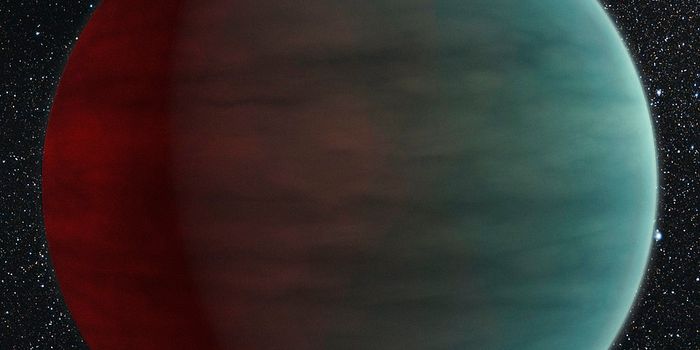Grad Student Highlights: David Handy (Florida Institute of Technology)
David Handy is a PhD student in Biological Sciences at the Florida Institute of Technology (Florida Tech) studying how bacteria assists in plant growth and how this can be useful in space crop production, and comes after Handy earned his B.S. in Astrobiology in 2019, also from Florida Tech.
”I was steered toward science by high school biology and chemistry teachers who were very influential in the beginning,” said Handy. “Due to my diverse interests in science, especially space sciences and biology, that led to me finding the field of astrobiology, which led me to Florida Tech. In my junior year I joined Dr. Andrew Palmer’s lab working on plant growth in Martian regolith simulant (a.k.a. fake Mars dirt). While I did not foresee going into plant work before that, Dr. Palmer's enthusiasm for the work and for mentoring students had me hooked.”
Handy said he has since fallen in love with both the work and the people within the fields of space biology and plant science. He praises Dr. Palmer for encouraging his students, both at the undergraduate and graduate levels, to attend conferences, with Handy saying he has had “nothing but positive” interactions with other individuals within plant science. Handy said his Martian research led him to the Kennedy Space Center (KSC) where he met Ralph Fritsche and Trent Smith via Florida Tech’s Space Act Agreement, during which time he suspected his dream job might be at KSC.
“After finishing my bachelor's, during my first semester of grad school, I managed to snag an internship at KSC, working in the same spaces as Ralph and Trent,” said Handy. “I got to meet just about the entire team of plant scientists and microbiologists at KSC, and those 4 months solidified KSC, in those labs, as my current dream job.” Handy said he chose this path because he wants to continue doing scientific research, and later a professor.
“In the field I want to go into, if I want to be the one calling the shots on what experiments I do, designing methods, all of that, I need the Ph.D. to back it up,” said Handy. “Not to mention that astrobiology is such a niche field, virtually all positions that can claim the title "astrobiologist" require a Ph.D.” Handy said the primary reason for returning to Florida Tech for grad school was because of the connections with KSC.
“The research I do now is a continuation of the work I did during my internship, and Florida Tech allows me to maintain contact with the colleagues I met during that time,” explains Handy. “One of them, Dr. Gioia Massa, is even on my Ph.D. committee. The other reason is the professors in biology here. Dr. Palmer, of course, is an amazing advisor, and the other professors I work with here are always so eager to help and talk with me about my work.”
Handy said one of the most obvious challenges that grad students face is economics, stating that since they don’t get paid that well this can make the prospect of grad school limited and difficult for a lot of students. He said he’s fortunate to have parents who are willing to support him, along with having roommates to share the cost of living.
Handy said his goal after grad school is to be a research scientist, with his goal at KSC. But he said he was recently introduced to the agricultural biotech industry, where he said he could easily apply his work on growing plants in space to help improve Earth’s agriculture.
“My ‘plan A’ is to work as a research scientist until I get closer to retirement age, then "retire" to be a professor so that I can help educate the next generation of research scientists,” said Handy. “The ‘plan B’ would be to go directly into a position as a professor at a university performing research and teaching, being a mentor to students the way Dr. Palmer and others here have been to me.”
Handy said his goal in 5-10 years is to be a NASA scientist creating methods to feed astronauts in space while studying how such approaches can also be applied here on Earth.
“My goal is to use space to ‘think outside the box’ with how food can be grown in austere environments, because if we can grow food on the Moon or Mars, we can use those same technologies to grow food in deserts, or inner cities, or other areas where growing food is difficult, and the community is therefore reliant on shipments,” he said.
As always, keep doing science & keep looking up!










